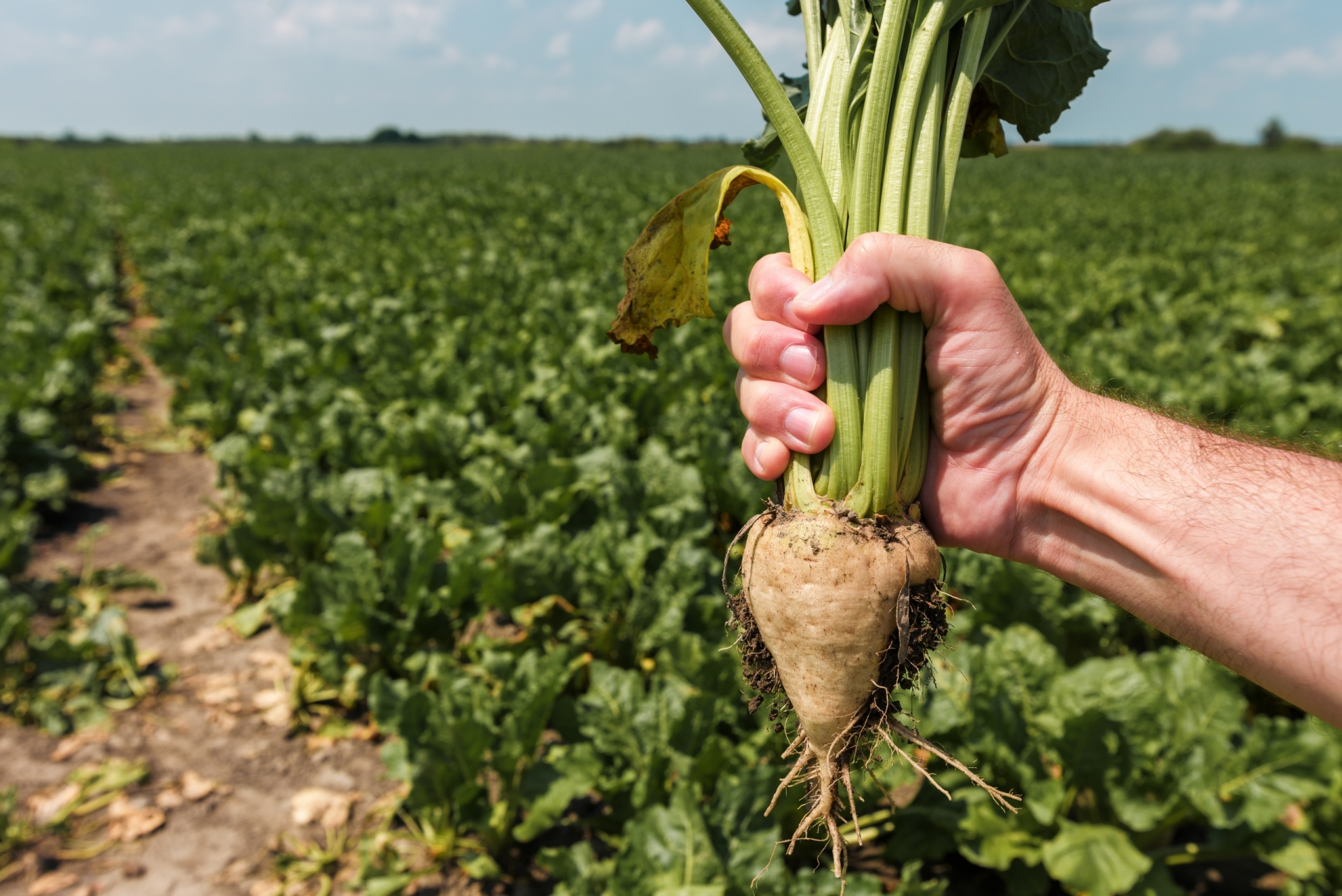
The dark truth about sugar beet
We all know sugar is bad for our health. But were you aware just how bad it is for our soil?
We all know sugar is bad for our health. But were you aware just how bad it is for our soil? Today, Feedback publishes a report uncovering the hidden damage growing sugar beet is doing to our soil.
In the UK we use over 100,000 hectares of prime agriculture land to grow a product we really need to eat less of: sugar. British Sugar, the monopoly company controlling the UK sugar beet industry refines around 7.6 million tonnes of sugar beet grown on English soils every year, turning it into over a million tonnes of refined sugar. And they have plans to expand, with a goal to increase production by 50%.
That much sugar sounds like pretty bad news from a health perspective, especially when you take into account that in the UK most adults consume double their recommended daily allowance. But it turns out there’s another casualty of all that sweet stuff: our soil.
Sugar beet is a hard-wearing crop on our soil. Harvesting it, especially late in the year when soil is wet, leads to large quantities of soil being lifted from the fields, stuck to the crop and to farm machinery. We’ve calculated that the sugar beet harvest caused an average soil loss of around 489,000 tonnes a year in the period 2014-2018. To put that in context, the UK’s total soil loss per year, excluding soil loss from harvesting, is estimated at 2.9 million tonnes – so the sugar beet harvest could be adding as much as 20% to our annual soil loss per year.
Consider the fact that it takes between 200 and 400 years to form 1cm of topsoil, and that soil is a resource at the very heart of our agricultural production. Surely, we should be doing everything we can to care for it?
It gets worse. Sugar beet is largely grown in East Anglia and the Midlands, in areas Natural England describes as having some of the best and most versatile land in the country. If we shrunk the area of land used to grow sugar beet by 40%, around the decrease needed to produce just enough sugar to meet our recommended daily allowance, we calculated that we could be growing 150,000 tonnes of peas, 3.1 million tonnes of carrots or 1.8 million tonnes of potatoes.
Once harvested, beet is delivered to one of four sugar beet refineries all owned by a single company, British Sugar. British Sugar is a monopoly: nearly 40 years after the state sold its stake in the company, the company remains the only buyer for the UK’s sugar beet growers, negotiating a fixed yearly price with NFU Sugar, the body representing UK beet growers. We asked British Sugar to comment on our estimate on sugar beet’s contribution to soil loss, but they did not respond to our request.
“We welcome this report, and urge the approach outlined in it to be applied across our entire food system so that the public health and environmental impact of the crops we grow can be considered alongside one another – and informed, ambitious and holistic choices made as a result.” Ellen Fay, Director, Sustainable Soils Alliance
On the one side, two vital and finite resources: our land and our soils. On the other, our health, and the costs to the NHS of treating ill-health related to excessive sugar consumption. Spending on treating Type 2 diabetes alone comes to £8.8 billion per year. With the government adopting policies to incentivise lower sugar consumption, like the ‘Sugar Tax’, it seems nonsensical to continue to use significant area of land to grow sugar.
Sugar is bad for us, and it is bad for the land it is grown on. Yet amidst these challenges, British Sugar plans to grow production by 50% annually – potentially with grave potential effects for our health, land use and soils.
Today, the UK shareholders of Associated British Foods Plc (ABF), the parent company that owns British Sugar, meet for the companies Annual General Meeting. ABF is forecasting strong earnings growth next year, including in its sugar divison.
We hope our new report will open a new front in the fight to tackle our addiction to the sweet stuff. Between 2008 and 2018 (so, excluding the potential impact of the Sugar Tax, which kicked in April 2018), the average decline in sugar consumption has been just 0.2% annually – at this rate, it would take the UK 386 years to reach the WHO recommended daily sugar intake. Policy to address high sugar consumption through demand alone are failing. It is time to explore the potential to constrain supply of UK-grown sugar.
Such a move poses the opportunity to staunch the rapid erosion of UK soils, to incentivise production of healthy vegetables improving food security, and to orient agricultural policy around the twin goals of public health and planetary health. As well as reconsidering the sugar in our tea, it is time to reassess the role of sugar beet in our fields.
Sugar and spice and all things nice?
We all know that too much sugar is bad for us. However, did you know about the hidden damage UK sugar production is inflicting on our soil? We pride ourselves on shining a light on forgotten corners of the food system, and uncovering problems, like UK sugar production, which seem to be hidden in plain sight. But we can't do it without your support - will you support our investigations by donating to Feedback?